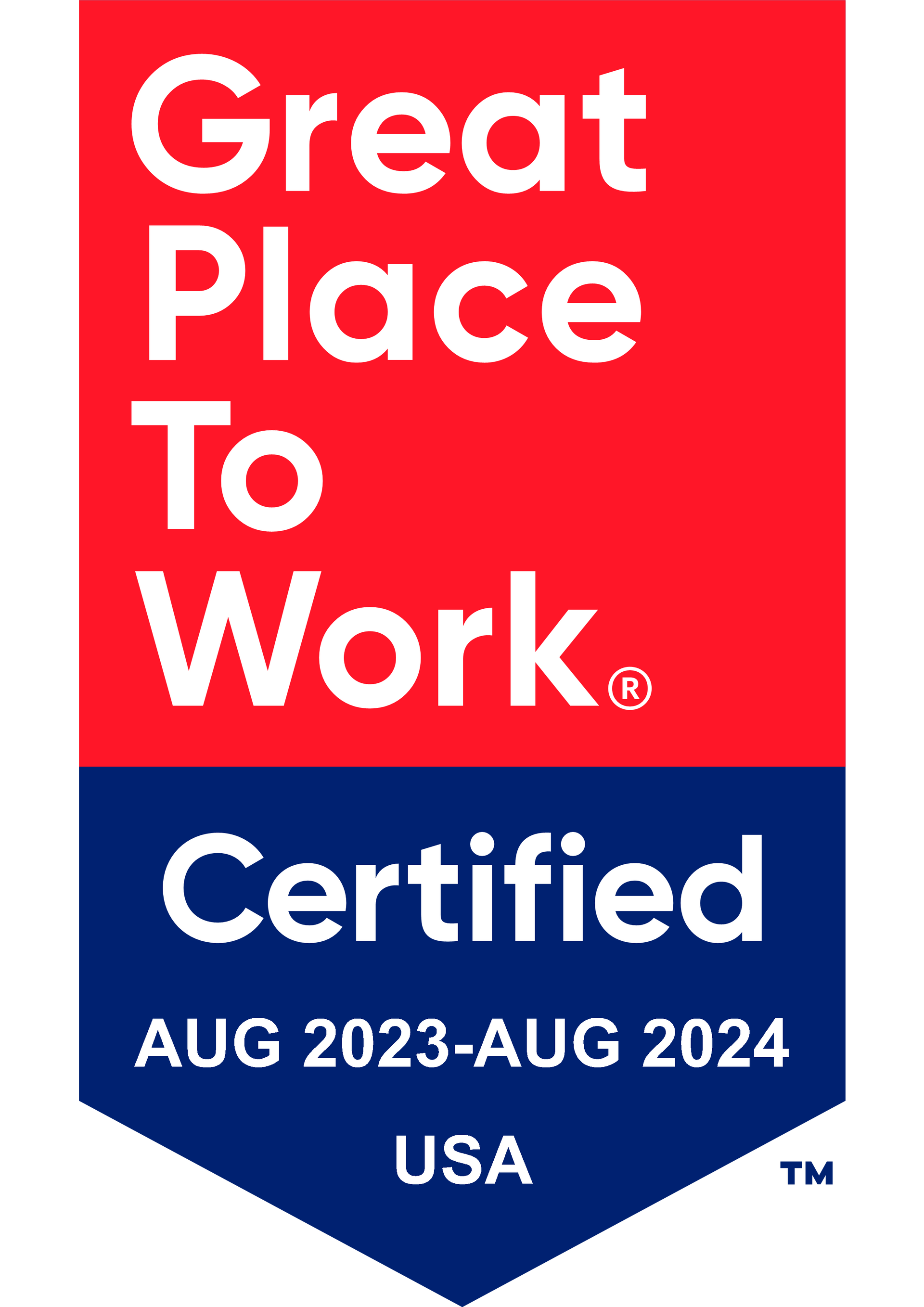Get in touch
408-366-8880
mymail@mailservice.com
employee benefit Insights

Employee Benefits

by Chris Freitas
•
18 June 2024
In today's competitive job market, offering traditional employee benefit packages like medical insurance and retirement plans is no longer enough to attract and retain top talent. Companies are increasingly turning to unique, non-traditional employee benefit packages to differentiate themselves and foster a positive work environment. These innovative perks not only make your company more attractive to potential employees but also contribute to higher employee satisfaction, productivity, and retention. Here are some creative employee benefit packages to help your business stand out. 1. Mental Health Support Mental health issues affect a significant portion of the workforce. Providing access to mental health resources, such as reduced-cost counseling sessions, online therapy, and confidential consultations, demonstrates a commitment to your employees' overall well-being. Supporting mental health can lead to a happier, healthier, and more productive workforce. 2. Personalized Appreciation Notes Recognition is a powerful motivator. Regularly sending personalized appreciation notes from senior management can boost morale and make employees feel valued. This simple, cost-effective gesture can improve job satisfaction and foster a positive work culture. 3. Work Anniversary Celebrations Celebrating work anniversaries acknowledges employees' contributions and loyalty. Whether it's a lunch, a coffee date, or a small celebration, recognizing these milestones can boost morale and create a sense of belonging and appreciation. 4. Free Food and Drinks Providing free snacks, beverages, or meals can be a great way to show appreciation and keep employees energized throughout the day. Even if you don't have the budget for extensive offerings, small gestures like occasional lunches or coffee runs can go a long way. 5. Parental and Family Leave Policies Extended parental leave policies acknowledge the importance of family bonding in the early stages of a child's life. Allowing parents to take additional time off without repercussions supports their need to balance family and work responsibilities, fostering loyalty and satisfaction among your employees. 6. Childcare Discounts or On-Site Childcare Facilities Finding reliable and affordable childcare is a significant concern for working parents. By offering childcare discounts or on-site childcare facilities, you alleviate this burden and help parents feel more at ease while at work. This benefit can significantly improve productivity and reduce absenteeism. 7. Pet-Friendly Workplace Pets are beloved members of many households, and employees often feel guilty about leaving them at home. A pet-friendly workplace, with designated areas for pets and pet-friendly policies, can boost morale and reduce stress. Employees who can bring their pets to work are often happier and more engaged. 8. Kid’s College Assistance With the rising costs of college education, providing financial assistance for employees' children's education can be a game-changer. Whether through 529 plans, scholarships, or other forms of support, this benefit demonstrates a long-term investment in your employees' families and can significantly enhance employee retention. 9. Surprise Days Off Rewarding employees with surprise days off for achieving major milestones or simply to show appreciation can be a delightful and motivating perk. It recognizes their hard work and provides them with valuable personal time to recharge. Conclusion Offering unique employee benefit packages is a strategic way to attract and retain top talent while fostering a positive and productive work environment. At KBI Benefits, we specialize in developing customized employee benefit packages that align with your company's budget and work culture. Our solutions can help you save up to 40% year-over-year while ensuring your employees feel valued and supported. Speak with a KBI Benefits agent today to get started and see how we can help your business stand out.

by Chris Freitas
•
10 June 2024
Running a small business comes with its own set of unique challenges. One of the most significant hurdles is providing competitive employee benefits. Unlike large enterprises, small businesses often face higher health insurance rates per employee due to limited purchasing power. This is where an employee benefits corporation can make a substantial difference. By pooling resources, an employee benefits brokers can offer small businesses access to top-tier employee benefit plans at reduced costs, helping them compete with larger companies. How Can an Employee Benefits Broker Benefit my Small Business? Employee benefits, particularly health insurance, play a critical role in employee satisfaction and retention. A study revealed that over 80% of employees consider health insurance "very or extremely important" when deciding to change jobs . In the current climate, benefits such as medical, life, disability, and supplemental insurance have become even more crucial in employment decisions. Offering a robust compensation package, which includes comprehensive health benefits, is essential for attracting and retaining top talent. Benefits of Partnering with an Employee Benefits Broker Partnering with an employee benefits broker allows small businesses to provide their employees with a wide range of health insurance options, as they’re connected with the most prominent employee benefits corporations. These group health insurance options include nationwide medical coverage, various health plan options (HMO, EPO, PPO, POS, and HDHPs), comprehensive dental and vision plans, and global travel insurance. Small businesses can offer the best employee benefits, rivaling those of larger corporations, when partnering with the right employee benefits broker. Disability, Life, and Supplemental Insurance Employee benefits insurance through an employee benefits broker also includes life insurance, disability insurance, and supplemental insurance. These plans help employees prepare for unexpected life events, offering peace of mind and financial security. Options typically include basic and supplemental life insurance, short-term and long-term disability insurance, and accident, critical illness, and hospital insurance. Additional Employee Perks and Discounts Beyond standard health benefits, employee benefits brokers enable small businesses to offer a variety of additional perks. These can include Flexible Spending Accounts (FSA), legal plans, home and auto programs, financial wellness programs, identity theft protection, and pet wellness insurance. Commuter benefits and entertainment perks further enhance the compensation package, making small businesses more attractive to potential hires. Administrative Support and Compliance One of the significant advantages of working with an employee benefits broker is the administrative support they provide. Managing employee benefits can be complex and time-consuming, but a broker handles these tasks efficiently. They offer online enrollment and compliance tracking, a 24/7 benefits hotline, expert claims assistance, and new hire benefits review and enrollment support. Brokers also provide digital platforms for self-service benefits management, making it easy for employees to view their benefits and connect with providers. Strengthening Your Workforce Employees are a company's most valuable asset, especially in uncertain times. Providing comprehensive workplace benefits can significantly enhance employee satisfaction and retention. According to research, over 60% of employees consider medical, dental, and other benefits to be critical factors in job satisfaction. Companies with the best benefits for employees typically see higher retention rates, which are associated with greater long-term profits. Partnering with an employee benefits broker to tailor employee benefit plans for small business needs can help attract and retain top talent. This not only boosts employee morale but also ensures the long-term success and growth of the business. With a well-rounded compensation package, small businesses can effectively compete with larger companies for the best employees. Conclusion Incorporating an employee benefits corporation into your small business strategy can significantly improve your ability to offer competitive employee benefits. By leveraging the combined purchasing power of an employee benefits broker, small businesses can access top-tier health insurance and additional perks, reduce administrative burdens, and ensure compliance. Most importantly, a comprehensive compensation package that includes the best employee benefits can attract and retain top talent, driving long-term business success. If you're ready to enhance your small business employee benefits, speak with a KBI Benefits broker today . Tailoring a plan to fit your specific needs can help you build a strong, satisfied, and loyal workforce, propelling your business toward future growth and success.

by Chris Freitas
•
22 May 2024
In today's competitive job market, employee benefits packages play a pivotal role in attracting and retaining top talent. This importance has only grown since the COVID-19 pandemic, which has shifted employee priorities, often valuing comprehensive benefits over higher salaries. For small businesses, constructing an effective benefits package is not just a perk; it's a strategic tool essential for long-term success. Let’s review the most effective aspects of a small business employee benefits package. Speak with a KBI Benefits agent today for personalized assistance. What to Know About Small Business Employee Benefits Packages An employee benefits package is more than just a salary. It includes various perks and advantages offered by employers, ranging from health insurance to flexible working arrangements. While larger companies might offer a broad spectrum of benefits, small businesses need to carefully select which benefits to provide, balancing employee needs with budget constraints. Key Components of a Benefits Package If you’re building your small business employee benefits package, here are the key features to include to stand out to potential employees: Health Insurance: Despite company size, offering health insurance can significantly impact employee satisfaction and retention. It’s often seen as a must-have by many employees. Retirement Plans: Including a 401(k) plan, possibly with employer matching, helps employees feel secure about their future. Paid Time Off (PTO): Small business employee benefits such as vacation days, personal days, and sick leave are highly valued by employees, promoting a healthy work-life balance. Dental and Vision Insurance: These are considered standard parts of a benefits package, helping cover everyday health needs that can otherwise lead to significant expenses. Emerging Trends in Employee Benefits Since the pandemic of 2020, there has been a notable shift in the types of benefits employees value: Healthcare Savings Accounts (HSAs): HSAs are becoming popular as they provide a way to save tax-free money for medical expenses, making high deductible health plans more attractive. Mental Health Support: The increasing awareness and destigmatization of mental health issues have prompted more companies to include mental health services in their benefits, such as Employee Assistance Programs (EAPs) and access to counseling. Flexible and Remote Work Arrangements: The pandemic accelerated the adoption of flexible work schedules and remote work capabilities, which are now often expected by employees. Not only is this beneficial for work-life balance, but it also increases the chances that employees will push through mild sickness to remain productive instead of calling off. Legal Considerations Small business employee benefits packages must also include legally mandated benefits, which vary depending on state and federal laws but generally include: Worker’s Compensation: This insurance is mandatory for covering employees who get injured on the job. Unemployment Benefits: Employers are required to participate in this program, which provides temporary financial assistance to eligible former employees. Family Medical Leave Act (FMLA): Qualifying employees are entitled to unpaid, job-protected leave for specified family and medical reasons. Improving Employee Financial Wellness To stand out, some businesses might offer unique perks that align with their culture and values, such as: On-site Childcare: This can be a significant benefit for working parents. Pet-friendly Workplaces: Allowing pets at work can enhance the work environment and reduce stress. Wellness Programs: Initiatives like fitness memberships, health screenings, and wellness challenges can improve overall employee health and reduce healthcare costs. Conclusion For small businesses, an effective employee benefits package is not just about the traditional perks. It’s about understanding the evolving needs of the workforce and responding in a way that supports the health and well-being of employees while aligning with the company’s capabilities and culture. By carefully selecting and managing these benefits, small businesses can compete effectively for top talent, even in a challenging market. If you’re ready to optimize your small business employee benefits package and save up to 40% on total cost, speak with a KBI Benefits agent today for assistance from a veteran employee benefits agent.

by Chris Freitas
•
20 May 2024
The significance of a robust compensation and benefits package cannot be overstated in the hiring process. Highlighting the value of the benefits you offer can help employees understand their worth beyond their salary. Toward this end, understanding the distinction between total employee compensation and total job benefits is essential. For more personalized assistance in improving your hiring practices, speak with a KBI Benefits agent today. How Total Job Benefits and Total Employee Compensation Differ Compensation encompasses everything employees receive as part of their income, which can directly translate to cash. This includes: Base Pay: Annual salary or hourly wage. Incentives: Bonuses or cash rewards for achieving goals. Equity: Stock options or company shares. On the other hand, Benefits are non-wage compensations provided to employees. These do not directly translate into cash as part of their income. According to the U.S. Department of Labor’s Bureau of Labor Statistics, benefits include: Paid leave Supplementary pay (overtime, holiday work, nonproduction bonuses) Retirement plans (401(k), pensions) Insurance (health, dental, vision, life, disability) Legally required benefits (Social Security, Medicare, unemployment insurance, workers’ compensation) What Are Total Benefits? Benefits cover a wide range of items that enhance employees' well-being and work-life balance. These include: Paid Time Off (PTO): Vacation, sick days, personal and bereavement leave. Insurance: Health, dental, vision, life, and disability insurance. Retirement Plans: 401(k) or 403(b), pension plans. Additional Benefits: Daycare assistance, tuition reimbursement, educational benefits, career advancement opportunities, relocation expenses. How to Determine Total Employee Compensation Calculating total employee compensation involves several steps: Base Pay: Determine the employee’s annual salary or hourly wage. Bonuses and Incentives: Include any additional earnings from performance-based rewards. Value of Time Off: Calculate the value of PTO, sick leave, and vacation days. Insurance Benefits: Quantify the employer-paid portions of health, dental, vision, life, and disability insurance. Miscellaneous Benefits: Include the value of on-site daycare, tuition assistance, relocation expenses, and other perks. Emphasizing Benefits During Recruitment When advertising job openings, emphasize the total compensation package, including benefits. Highlighting key benefits immediately after discussing base pay can attract candidates who value comprehensive compensation. During the new hire stage, provide detailed benefits information and support through Human Resources to help new employees understand and appreciate their benefits. Conclusion Understanding and effectively communicating the value of total job benefits and total employee compensation is vital for attracting and retaining talent. By breaking down the components of compensation and benefits, employers can showcase the true worth of their offers. For personalized assistance in creating and communicating a compelling compensation package, speak with a KBI Benefits agent today .

by Chris Freitas
•
13 May 2024
As rates continue to climb, many companies find themselves questioning whether it is the right time to switch their insurance and employee benefits broker. It's a significant decision, especially given that most firms are hesitant due to the anticipated complications. However, the process of finding and transitioning to a more adept broker is often simpler and less disruptive than many anticipate. This might be the ideal opportunity to seek a new partnership, especially with the rising costs of insurance and employee benefits. Speak with KBI Benefits today to allow our experts to handle the transition for you while saving your company as much as 40% on your benefits. Reasons to Consider a Broker Change The decision to change brokers typically stems from a loss of confidence in the broker. This could be due to strategic oversights on the broker’s end, such as failing to accurately predict market trends, a weak relationship with insurers, or an inability to procure the best coverage at competitive prices. Moreover, subpar service can leave clients feeling neglected and wondering what they’re paying their broker for. In other cases, a company might simply outgrow its current broker. As the business expands, it may require a broker with more advanced technical skills or better capabilities in managing costs effectively for a growing firm. How to Change Employee Benefit Brokers Contrary to common belief, switching brokers mid-term usually has minimal impact on the insurance or benefits programs and does not adversely affect employees. The existing coverage continues unchanged, while the new broker starts representing the client immediately with the existing carriers. A noteworthy consideration is the handling of ongoing claims. If the current broker is involved in resolving claims, the new broker will need to take over this responsibility. Similarly, for employee benefits, the transition to a new broker is smooth, with the new broker taking over responsibilities, including any dispute resolutions. Minor logistical tasks such as redirecting calls to the employee claims center and communicating details during open enrollment periods are managed efficiently by the successor broker. Benefits of Changing Brokers Mid-Term Changing brokers mid-policy can provide several advantages. Firstly, it allows the new broker ample time to familiarize themselves with the client’s program before renewal negotiations, offering a strategic advantage. Secondly, a new broker can quickly address technical policy issues or service gaps, potentially enhancing the user experience and reflecting positively on the management. Most importantly, there is typically no financial cost associated with changing brokers mid-term. Business insurance brokers generally begin servicing a new client without immediate payment, with compensation following at the next renewal cycle. In the realm of employee benefits, new brokers usually receive payment after insurance company fees are transferred, which occurs about two months after the change is initiated. How to Initiate a Broker Change Breaking up with your current broker is more straightforward than it seems, with much of the heavy lifting done by the new broker. The process starts with a Broker of Record (BOR) letter, a recognized industry standard for changing brokers. The client needs to print this letter on their company letterhead, sign it, and forward it to the new broker, who then submits it to the client’s insurance companies. There's typically a brief waiting period of five to ten days before the change takes effect, providing a short window for reconsideration. Once the insurance companies are notified, they usually confirm the change by contacting the successor broker. While it’s considered a professional courtesy to inform the current broker in advance about the change, it isn’t mandatory. The entire transition process can generally be completed in less than a month, allowing businesses to quickly benefit from their new broker’s services. Changing your benefit brokers need not be a daunting task. With careful planning and the right guidance, businesses can make the transition smoothly and reap significant benefits from a new brokerage partnership. Speak with a KBI Benefits agent today to initiate the process and start saving on your benefits sooner.

by Chris Freitas
•
6 May 2024
Despite their essential role in keeping the population food secure, farmers often struggle to protect their own families from sickness and mounting medical bills. That’s where KBI Benefits steps in, proudly offering UnitedAg medical plans tailored to meet the unique needs of agricultural professionals. If you’re in the agriculture industry and you’re looking for affordable healthcare coverage and wellness initiatives for your employees, let's discuss how KBI Benefits, partnered with UnitedAg, is making that process easier than ever. United Ag: Powering the Agriculture Industry’s Healthcare At KBI Benefits, we’re thrilled to extend UnitedAg medical plans to members of the agriculture industry. Our commitment to providing exceptional benefits packages is matched only by our dedication to supporting the health and well-being of your workforce. UnitedAg is designed to provide lower medical plan rates to agribusinesses than if they purchased a plan on the open market. KBI Benefits is simplifying this process even further. Speak with a KBI Benefits agent today to sign up for a UnitedAg medical plan for your business. Navigating the Enrollment Process Enrolling in UnitedAg medical insurance through KBI Benefits is a straightforward process designed to streamline your experience. Our team of experts is here to guide you every step of the way, ensuring that you understand your options and can make informed decisions for your organization. Simply reach out to a KBI Benefits representative today to kickstart the enrollment process and embark on a journey toward comprehensive healthcare coverage. Key Features and Benefits Highlighting the advantages of UnitedAg medical plans is essential to understanding the value they bring to your agribusiness. From extensive wellness programs to cost-saving initiatives, these plans are designed to prioritize the health and happiness of your workforce. Let’s delve into some of the standout features: Comprehensive Coverage: UnitedAg medical plans offer robust coverage options tailored to the needs of agricultural businesses. Whether it's routine check-ups or specialized treatments, you can rest assured knowing that your team has access to top-tier healthcare services. Wellness Programs: Promoting employee well-being is at the core of UnitedAg's mission. With a range of wellness programs aimed at fostering healthy habits and lifestyles, you can empower your workforce to thrive both in and out of the workplace. Flexibility and Support: KBI Benefits understands that every organization has unique needs. That’s why we offer unparalleled flexibility in crafting commercial medical insurance solutions that align with your specific requirements. Our team is here to provide personalized support and guidance, ensuring that you receive the coverage that best suits your organization. Exclusive Benefits: From free generics at Costco Pharmacies to virtual primary care services, UnitedAg medical plans come packed with exclusive benefits designed to enhance the overall healthcare experience for your team. With features like mental health support, travel reimbursement programs, and built-in Cobra administration, you can rest assured that your workforce is well taken care of. Empower Your Organization Today In conclusion, accessing UnitedAg medical insurance through KBI Benefits is a game-changer for agricultural businesses looking to prioritize the health and well-being of their workforce. With comprehensive coverage, extensive wellness programs, and exclusive benefits, these plans empower you to provide top-tier healthcare solutions to your team. Don’t wait any longer – reach out to a KBI Benefits representative today to unlock the benefits of UnitedAg medical insurance for your organization.

by Chris Freitas
•
23 April 2024
As the agricultural sector evolves and expands, the need for comprehensive medical plans tailored to the unique demands of this industry has become more pronounced. That’s why KBI Benefits is proud to offer UnitedAg medical plans designed specifically for agribusinesses, providing a robust solution to protect your employees and your agribusiness. Let’s discuss what agriculture medical insurance is, who it’s for, and how KBI Benefits can help you get started. What is Agriculture Medical Insurance? Agriculture medical insurance, particularly in the context of medical plans, offers coverage that protects farm owners, operators, and their employees against the financial burdens of medical expenses. This insurance is essential for mitigating the risks associated with illnesses and injuries that can be common in a physically demanding job. Health insurance for agribusinesses not only covers medical and hospital bills but often also includes wellness programs and preventive care, which are crucial in maintaining a healthy workforce. How to Receive Agriculture Insurance for Your Agribusiness The scope of agriculture medical insurance, extends to many entities in the agricultural sector, including entities that empower or influence agricultural businesses. This includes: Agriculture Production: Businesses engaged in crop and livestock production. Agricultural Services: Companies providing support services to the agriculture sector, such as soil preparation, planting, and harvesting. Forestry and Timber: Entities involved in the management and production of forest resources. Commercial Fishing and Hatcheries: Businesses focused on the breeding, raising, and harvesting of fish and other aquatic species. Agribusiness Support: Firms involved in the processing, distribution, and marketing of agricultural products, as well as those supplying equipment and inputs like seeds, chemicals, and machinery. To qualify for UnitedAg medical plans through KBI Benefits, companies must demonstrate that they derive at least 51% of their income from production agriculture or agribusiness-related activities. Most businesses within the Standard Industrial Classification (SIC) Codes for Agriculture, Forestry, and Fishing are eligible, although there are specific criteria and exceptions that may apply. Speak with a KBI Benefits agent today to learn more. How KBI Benefits Facilitates Agriculture Insurance KBI Benefits, in collaboration with UnitedAg, provides specialized medical plans tailored to the needs of the agricultural industry. Our recent appointment to offer agriculture medical plans underscores our commitment to enhancing the well-being of those who work hard to feed the nation. Here's how we help: Customized Solutions: We understand that no two agribusinesses are the same. KBI Benefits offers personalized consultations to ensure that the coverage meets the specific needs of each business, considering factors like company size, types of activities, and employee needs. Easy Accessibility: Our team of dedicated agents is just a call away, ready to guide you through the process of selecting and setting up the right plan for your business. Comprehensive Coverage: The UnitedAg medical plans offered by KBI Benefits cover a range of health services, from emergency care and hospitalization to preventive wellness programs, ensuring comprehensive coverage for your workforce. Support and Advisory: Beyond just providing insurance, we serve as a partner in ensuring the health and productivity of your employees, offering ongoing support and advice regarding your agriculture medical insurance to keep your operations running smoothly. Conclusion The health of your employees is as critical as the health of your agribusiness. In an industry as physically demanding as agriculture, having the right medical coverage is not just beneficial; it's essential. Protect your most valuable asset—your people— by speaking with a KBI Benefits agent today . We'll help you choose the agriculture medical insurance plan that best suits your agribusiness's needs, ensuring peace of mind and fostering a healthier, more productive workforce.

by Chris Freitas
•
11 April 2024
Self-funded health plans represent a departure from traditional fully-insured plans where employers pay a fixed premium to an insurance carrier. Instead, in a self-insured model, employers pay for out-of-pocket claims as they are incurred, often setting aside funds in a trust to cover these expenses. Let’s explore the positives and negatives of this funding model and whether your company could benefit from adopting it. For more personalized assistance with improving your employee benefits ROI, speak with a KBI Benefits agent today. What Are Self-Insured Health Plans? At its core, a self-insured health plan allows an employer to tailor healthcare benefits to the specific needs of its workforce, avoiding the one-size-fits-all approach of traditional insurance policies. This customization is not just about meeting employees' health needs but also about financial management. By directly funding healthcare claims, employers can improve cash flow and save on the premium taxes and margins that insurance carriers typically charge. Furthermore, self-insured plans offer employers the opportunity to retain control over the plan's reserves, potentially earning interest income that would otherwise benefit the insurance carrier. They also allow for greater flexibility in selecting healthcare providers or networks that best match the needs of their employees, providing a potentially higher quality of care. Why Self-Insured Health Plans? The appeal of self-insured plans is underscored by the numbers. A report by the Employee Benefit Research Institute highlighted that a significant portion of the workforce is covered by employer-sponsored self-insured plans. This model is commonly chosen for its numerous advantages, including customizable health care plans, improved cash flow due to the absence of pre-paid premiums, exemption from state health insurance regulations, and savings on state premium taxes. However, the suitability of self-insurance varies by employer. While large employers may comfortably absorb the financial variability of claims, smaller employers or those with less stable cash flows may find self-insuring risky. Despite this, even some small businesses with as few as 25 employees have successfully adopted self-insured health plans, highlighting the model's flexibility. Unsure if this funding model suits your company? Speak with a KBI Benefits agent today to schedule an in-depth audit. Risk Management and Administration One of the critical concerns with self-insuring is the potential for unpredicted or catastrophic claims. To mitigate this, many employers purchase stop-loss insurance , which covers claims exceeding a certain amount. This strategy helps manage risk while still allowing employers to enjoy the benefits of self-insuring. Claims administration is another crucial aspect. Employers may choose to handle it in-house or outsource it to a third-party administrator (TPA). TPAs can offer valuable services in setting up and managing self-insured plans, including coordinating stop-loss insurance and provider networks. Compliance and Employee Contributions Self-insured plans are subject to a range of federal laws, including ERISA, HIPAA, and COBRA. These regulations ensure that plans provide fair and consistent benefits and protect employees' rights. Employee contributions towards their coverage continue to be processed through payroll deductions, maintaining a familiar structure for funding their benefits. The Conclusion: Finding the Right Balance While self-insured health plans offer numerous advantages, they are not suitable for every business. The decision to self-insure should be based on a comprehensive analysis of an employer's financial stability, risk tolerance, and the specific healthcare needs of its workforce. For those considering this path, working with a knowledgeable partner can make all the difference. This is where KBI Benefits comes in. Specializing in developing creative financing models, KBI Benefits can enhance your employee benefits ROI by as much as 40%. By partnering with KBI Benefits, employers can discover the optimal funding structure for their benefits plan, tailored to their unique needs and circumstances. Whether you're looking to transition to a self-insured model or optimize an existing plan, speaking with a KBI Benefits agent today could be the first step towards a more efficient and effective benefits strategy.

by Chris Freitas
•
9 April 2024
Self-funded health plans represent a departure from traditional fully-insured plans where employers pay a fixed premium to an insurance carrier. Instead, in a self-insured model, employers pay for out-of-pocket claims as they are incurred, often setting aside funds in a trust to cover these expenses. Let’s explore the positives and negatives of this funding model and whether your company could benefit from adopting it. For more personalized assistance with improving your employee benefits ROI, speak with a KBI Benefits agent today. What Are Self-Insured Health Plans? At its core, a self-insured health plan allows an employer to tailor healthcare benefits to the specific needs of its workforce, avoiding the one-size-fits-all approach of traditional insurance policies. This customization is not just about meeting employees' health needs but also about financial management. By directly funding healthcare claims, employers can improve cash flow and save on the premium taxes and margins that insurance carriers typically charge. Furthermore, self-insured plans offer employers the opportunity to retain control over the plan's reserves, potentially earning interest income that would otherwise benefit the insurance carrier. They also allow for greater flexibility in selecting healthcare providers or networks that best match the needs of their employees, providing a potentially higher quality of care. Why Self-Insured Health Plans? The appeal of self-insured plans is underscored by the numbers. A report by the Employee Benefit Research Institute highlighted that a significant portion of the workforce is covered by employer-sponsored self-insured plans. This model is commonly chosen for its numerous advantages, including customizable health care plans, improved cash flow due to the absence of pre-paid premiums, exemption from state health insurance regulations, and savings on state premium taxes. However, the suitability of self-insurance varies by employer. While large employers may comfortably absorb the financial variability of claims, smaller employers or those with less stable cash flows may find self-insuring risky. Despite this, even some small businesses with as few as 25 employees have successfully adopted self-insured health plans, highlighting the model's flexibility. Unsure if this funding model suits your company? Speak with a KBI Benefits agent today to schedule an in-depth audit. Risk Management and Administration One of the critical concerns with self-insuring is the potential for unpredicted or catastrophic claims. To mitigate this, many employers purchase stop-loss insurance , which covers claims exceeding a certain amount. This strategy helps manage risk while still allowing employers to enjoy the benefits of self-insuring. Claims administration is another crucial aspect. Employers may choose to handle it in-house or outsource it to a third-party administrator (TPA). TPAs can offer valuable services in setting up and managing self-insured plans, including coordinating stop-loss insurance and provider networks. Compliance and Employee Contributions Self-insured plans are subject to a range of federal laws, including ERISA, HIPAA, and COBRA. These regulations ensure that plans provide fair and consistent benefits and protect employees' rights. Employee contributions towards their coverage continue to be processed through payroll deductions, maintaining a familiar structure for funding their benefits. The Conclusion: Finding the Right Balance While self-insured health plans offer numerous advantages, they are not suitable for every business. The decision to self-insure should be based on a comprehensive analysis of an employer's financial stability, risk tolerance, and the specific healthcare needs of its workforce. For those considering this path, working with a knowledgeable partner can make all the difference. This is where KBI Benefits comes in. Specializing in developing creative financing models, KBI Benefits can enhance your employee benefits ROI by as much as 40%. By partnering with KBI Benefits, employers can discover the optimal funding structure for their benefits plan, tailored to their unique needs and circumstances. Whether you're looking to transition to a self-insured model or optimize an existing plan, speaking with a KBI Benefits agent today could be the first step towards a more efficient and effective benefits strategy.
Services
Latest Thinking

by Chris Freitas
•
8 April 2025
Offering a 401(k) plan is a major component of an employer’s benefits package, but simply providing one isn’t enough. To truly support employees’ long-term financial wellness and encourage meaningful participation, employers must understand how satisfied employees are with the plan — and more importantly, why. One of the most effective ways to do that is through an employee satisfaction survey. By tailoring your survey questions to reflect employees’ concerns, confusion, and priorities, you can gather actionable insights to refine your plan offerings and communication strategy. Here’s how to design thoughtful survey questions based on the most common concerns employees have about their 401(k) plans — and how to interpret their feedback. 1. Do Employees Know What They’re Enrolling In? Employee concern: What is a 401(k), and how does it work? Survey questions: How confident do you feel in your understanding of how the 401(k) plan works? Do you feel the company has provided adequate resources to help you understand the 401(k) plan? Why ask: If many employees report low understanding, it may signal the need for improved onboarding materials, workshops, or one-on-one sessions with financial advisors. 2. The Employer’s Role: Are Contributions and Match Clear? Employee concern: What is my company’s role in my 401(k), and how does the match work? Survey questions: How satisfied are you with the employer match offered in your 401(k) plan? Do you fully understand how the employer match is calculated and applied? Why ask: Confusion about matching contributions can lead to under-utilization of the benefit. If clarity is lacking, enhance your benefits communication or provide real-life match scenarios. 3. How Does the Plan Stack Up? Employee concern: Are all 401(k) plans the same? Survey questions: How would you rate the overall competitiveness of our 401(k) plan compared to your previous job’s offering or the offering of other jobs you’ve previously been offered? Which features of the plan are most valuable to you? (Select all that apply: generous match, low fees, automatic enrollment, immediate vesting, etc.) Why ask: This feedback helps identify which plan features resonate most with your workforce and where your benefits may fall short against competitors. 4. Is It Easy to Get Started? Employee concern: When can I start contributing? Survey questions: How satisfied were you with the timeline for enrolling in the 401(k) plan after joining the company? Was the enrollment process clear and easy to complete? Why ask: A lengthy or confusing enrollment process may deter participation. If dissatisfaction is high, it may be worth reviewing your onboarding or eligibility waiting periods. 5. Are Employees Saving Enough — and Do They Know It? Employee concern: How much should I contribute, and how often? Survey questions: How confident are you that you're contributing enough to meet your retirement goals? Would you find it helpful if we offered personalized guidance on how much to contribute? Why ask: Employees often feel unsure about their savings rate. Offering financial tools or advisory services could bridge this gap and boost satisfaction. 6. Are Employees Informed About Opportunities? Employee concern: What’s the maximum I can contribute? Survey questions: Are you aware of the annual IRS contribution limits for 401(k) plans? Would you like more communication around maximizing your contributions? Why ask: High-income or older employees may want to contribute more than the default. Ensuring they’re informed helps them plan more effectively. 7. Withdrawal Rules: Are Employees Aware of the Rules and Penalties? Employee concern: When can I access my money without penalties? Survey questions: Do you understand the rules around withdrawing money from your 401(k)? Would you benefit from educational materials or sessions about retirement withdrawal strategies? Why ask: A lack of awareness around withdrawal penalties and timelines can lead to poor decision-making or dissatisfaction. Education can help set clear expectations. 8. Plan Consolidation: Are Employees Managing Multiple Accounts? Employee concern: Can I have multiple 401(k) plans? Should I consolidate? Survey questions: Do you have retirement savings in more than one account (e.g., old 401(k)s or IRAs)? Would you be interested in services to help consolidate or manage multiple retirement accounts? Why ask: Many employees struggle with scattered savings. Supporting rollover or consolidation can improve their financial clarity — and your retention rates. Final Thoughts Designing a 401(k) survey that reflects real employee concerns allows HR and benefits teams to move from assumption to action. The questions above are crafted to uncover blind spots, highlight strengths, and identify specific areas for improvement — whether it’s boosting clarity, enhancing match policies, or simplifying plan features. Remember, the goal is not just to offer a 401(k) plan, but to make it a valued and effective part of your employees’ financial future. Ask the right questions, and you’ll get the answers you need to build a stronger, smarter retirement benefits offering.



